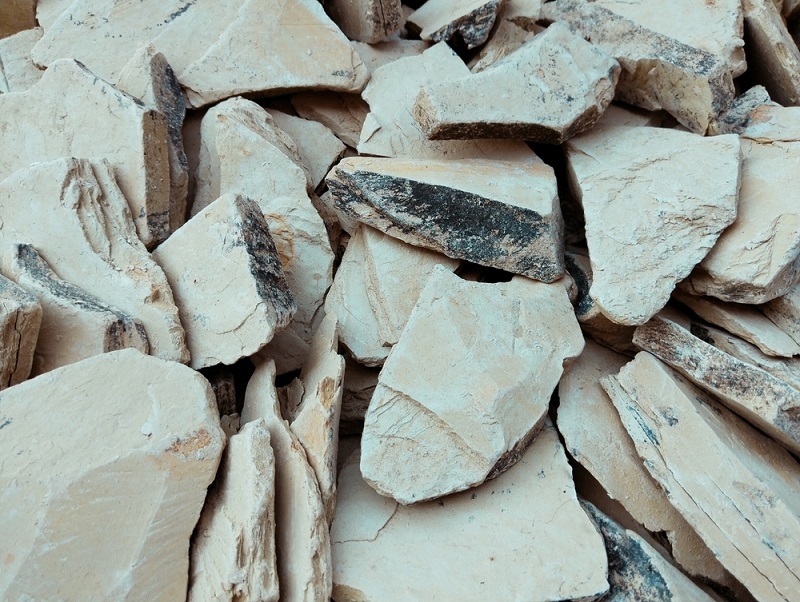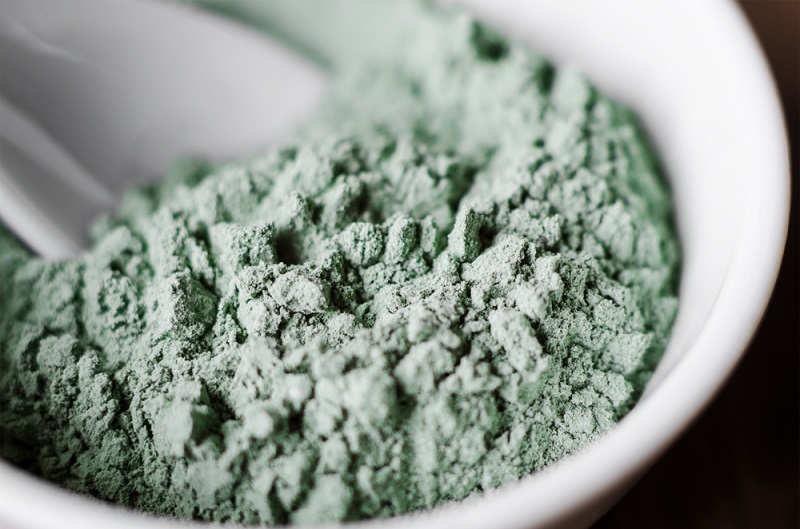
It is very rare that substances like bentonite stay away from the spotlight even after their huge list of uses. It does not sparkle or boast, yet this clay has quietly embedded itself into everything. From the buildings we live in to the skincare products on our shelves, bentonite is essential for their existence. It is formed from ancient volcanic ash and is more than just dirt because of its powerful purpose.
Bentonite usually does the job efficiently and often invisibly starting from sealing off groundwater or clarifying your favorite wine. Let's find out the properties that make bentonite so useful and understand its origins and types.
Bentonite is a mineral that is formed by the weathering of volcanic ash for millions of years. It has a special blend of properties that makes it a versatile mineral and one of the most used clays in today's industries. The main component is montmorillonite, a mineral that is known for its absorbent and expansive qualities. Bentonite doesn't just absorb water it swells and turns into a gel-like substance with multiple practical uses.
Its versatility is because of its structure and mineral content as bentonite can absorb toxins and seal leaks. But the story of bentonite is not just about chemistry but it’s about how that chemistry solves real-world problems across industries.
The following points will explore the different reasons that make Bentonite special:
The most talked-about feature of bentonite is that it can absorb several times its own weight in water. This expansion allows it to create tight seals and makes it very useful for lining ponds and even drilling sites.
Bentonite is highly moldable in wet conditions and helps in creating perfect molds in metal casting and forming tight seals in construction projects.
Bentonite’s cation exchange capacity attracts and holds onto certain chemicals. This is the reason it is used in soil improvement and water purification
Its microscopic surface area gives bentonite the ability to trap impurities that enables it to clarify liquids and bind contaminants in waste treatment.
Bentonite holds its form even in high temperatures. This makes it an extremely important part of industries like foundry work and oil drilling.
Bentonite is not only in one size that fits all. Its classification depends on the dominant mineral ions within it. The two primary types of bentonite are:
It is known for its high swelling capacity and is a highly-used in heavy-duty industrial tasks. You can find it to be used in the following operations or activities:
It is also known as fuller’s earth and this type of bentonite absorb less water but are highly valued in the health and beauty care:
Each type serves a distinct role. Sodium bentonite handles the heavy lifting, while calcium bentonite focuses more on refinement and personal wellness.
Essential Reading: 7 Trends Shaping the Future of the Metals & Mining Industry

The industrial uses of bentonite span across sectors starting from the construction zones to cosmetic counters. The different ways that this mineral works its magic are as follows:
Sodium bentonite is extremely important during drilling operations. It helps in stabilizing the boreholes and keeps the drill cool. Drilling would be slower, riskier, and more expensive without it.
Bentonite slurry is used to stabilize trench walls and form unbreakable barriers. It helps in tunneling, dam lining, and foundational work.
Bentonite has the ability to hold sand together and create strong molds for casting metals. These molds are flexible and comfortably handle the heat. This allows it to create the desired shape without breaking.
Bentonite is extremely important for keeping our environment safe. Its natural ability to absorb and trap harmful substances makes it ideal for projects like landfill liners or cleaning up oil spills. It acts like a sponge, locking in pollutants so they don't spread into the surrounding soil or water.
Bentonite is a bit of a secret weapon for farmers. It helps the soil hold onto nutrients and moisture, which is especially useful in dry or drought-prone areas. By improving soil structure and reducing water loss, it supports healthier, more resilient crops.
Ever wonder how your favorite wine or fruit juice stays so clear? That's bentonite at work. Calcium bentonite is often used in the filtering process to remove tiny particles that can cause cloudiness. It does it even without changing the taste or aroma of the drink.
Bentonite is a favorite in the world of natural skincare. It gently draws out toxins and impurities from the skin, making it a go-to ingredient in face masks, detox baths, and soothing pastes.
Each of these industries benefits from bentonite’s natural strength, versatility, and safety.
Sodium bentonite is the muscle of the clay world. Here’s a closer look at where it makes the most impact:
Its ability to transform into a gel-like seal when hydrated gives sodium bentonite a versatility that’s hard to match.
Must Read: Effective Water Management in Mining: Strategies & Solutions
Calcium bentonite is a refined version of the raw bentonite and is equally useful. It is mostly used in the health and beauty industry:
Its softer structure makes it ideal for applications that touch the inside or outside the body.
Bentonite is not the most popular mineral but its usefulness is undeniable. It can hold back floods, clear your skin, and even support the foundations of buildings where we live. Only a handful of materials can match its application and reliability.
Whether it is the swelling strength of sodium bentonite or the gentle effectiveness of calcium bentonite, this mineral proves that natural solutions usually last and perform better than artificial ones.
This content was created by AI